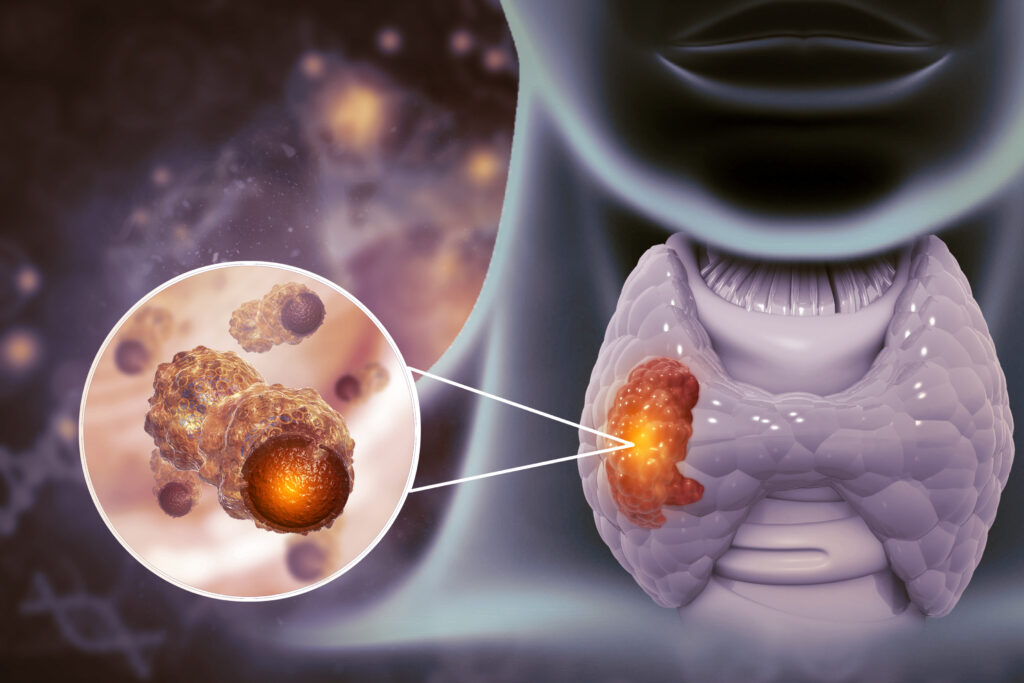Decoding Thyroid Cancer Mutations: Unraveling the Genetic Landscape

Thyroid cancer is a complex disease that can be influenced by genetic mutations. These mutations play a significant role in the development, progression, and treatment of thyroid cancer. In this blog post, we will explore the common genetic mutations associated with thyroid cancer and their implications for diagnosis, prognosis, and targeted therapies.
 Common Genetic Mutations in Thyroid Cancer
Common Genetic Mutations in Thyroid Cancer
Several genetic mutations have been identified in thyroid cancer, with some being more prevalent than others. The most common mutations include alterations in the BRAF, RAS, and RET genes. The BRAF V600E mutation, in particular, is the most frequently observed mutation in papillary thyroid carcinoma (PTC). RAS mutations, involving HRAS, NRAS, and KRAS genes, are also prevalent in both PTC and follicular thyroid carcinoma (FTC). Additionally, rearrangements and point mutations in the RET gene are commonly found in medullary thyroid carcinoma (MTC).
Implications for Diagnosis and Prognosis
Genetic mutations in thyroid cancer have important implications for diagnosis and prognosis. Detection of specific mutations can aid in the diagnosis and differentiation of different types of thyroid cancer. For instance, the presence of the BRAF V600E mutation is strongly associated with PTC and can help confirm the diagnosis. Furthermore, certain mutations and fusions, such as BRAF V600E, TERT, RET/PTC, TP53, ALK, NTRK, can be linked to more aggressive tumor behavior and poorer prognosis in thyroid cancer patients.
Targeted Therapies and Precision Medicine
Understanding the genetic mutations in thyroid cancer has paved the way for targeted therapies and precision medicine approaches. The identification of specific mutations has enabled the development of targeted drugs that selectively inhibit the activity of mutated genes or their downstream signaling pathways. For example, patients with BRAF V600E mutation-positive thyroid cancer may benefit from targeted therapies like BRAF inhibitors.
Moreover, molecular profiling of thyroid cancer tumors can help guide treatment decisions and identify potential therapeutic targets. This approach allows for a more personalized treatment plan tailored to the individual genetic profile of the tumor. Molecular testing can also provide insights into the likelihood of treatment response and help predict disease recurrence.
Thyroid cancer mutations are an integral part of the disease landscape, influencing diagnosis, prognosis, and treatment strategies. Genetic testing and molecular profiling play a crucial role in understanding the genetic alterations in thyroid cancer and guiding personalized treatment approaches. As our knowledge of thyroid cancer mutations expands, so does the potential for improved outcomes and precision medicine interventions.

